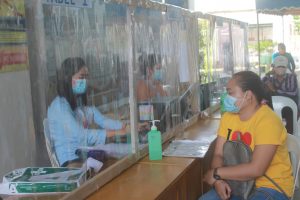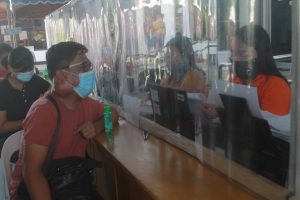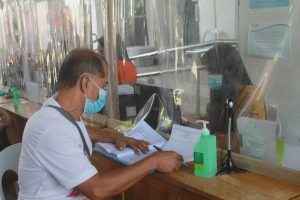Nineteen thousand two hundred twenty-three (19, 223) individuals who are in dire need, or are in a crisis situation have been served by the Department of Social Welfare and Development (DSWD), through its Assistance to Individuals in Crisis Situation (AICS) program of the Crisis Intervention Section, for the first semester of 2020 (January – June).

CIS is the lead section in implementing the AICS and the Assistance to Families and Communities in Need (AFCN) programs. AICS and AFCN are considered the social safety net mechanisms of the government to assist those who are confronted with crisis situation and financial deficiencies.
These programs contribute to the attainment of one of the five Organizational Outcomes of DSWD which states: Rights of the poor and the vulnerable sectors promoted and protected.
For this year’s first semester, a total amount of Php75,622,795.80 were given to the individuals in need of financial assistance. There was a decrease of the total clients served by 4.28% compared to the second semester of 2019 which was 20,083. The reason for the decrease of clients is due to the effect of the COVID-19 pandemic that the country is facing right now. CIS was mandated to only cater 50 clients per day in the field office, while 30 clients were served in the satellite offices.

Despite the situation, CIS was still able to cater the different needs of the clients who visited the Field Office and the satellite offices. 99.43% of the clients were even provided with at least two types of assistance such as financial, advice giving, referrals, hot meals, and food packs.
All of the clients were also provided psycho-social services for their emotional and psychological needs. Referrals to other agencies were facilitated in case the Agency cannot provide the required services for the clients.
Out of 19,223 clients, 13,771 (72.16%) were given medical assistance, 2,477 (12.89%) were given burial assistance, 1,524 (7.93 %) were provided with cash assistance, 928 (4.83%) were given food assistance, 355 (1.85%) were extended with educational assistance, and 168 (0.87%) were provided with transportation assistance.
For the clients who were provided with medical assistance, they were assisted on their medical expenses such as payment of hospital bills, expensive cost of laboratory fees like CT Scan, MRI, ultrasound, X-Ray, and others. Patients requiring long-term treatments like hemodialysis and cancer patients undergoing chemotherapy have been assisted also with their medical expenses and maintenance medication.
Financial assistance, through cash disbursement was also provided to the Locally Stranded Individuals and Returning Overseas Filipino Workers who were stranded in the different regions of the country. The assistance given was for their food sustenance and house rental while stranded.
Food assistance was also granted to individuals who accompanied their patients in the hospital and for the recipients of transportation assistance during their travel to their respective provinces.

For this semester, DSWD FO Caraga through the CIS, was able to establish new partnership that offers rehabilitation and treatment services for disabled persons, such as the partnership with the Davao Jubilee Foundation for the Rehabilitation of the Disabled Inc., Davao City.
DSWD FO Caraga pulled out all the stops to deliver its mandate satisfactorily, even with the great challenges brought about by the pandemic. DSWD was able to improve the well-being of poor families, promote and protect the rights of the poor and vulnerable sectors, ensure the immediate relief and early recovery of disaster victims/survivors, ensure the continuing compliance of social welfare and development (SWD) agencies to standards in the delivery of social welfare services, and improved the delivery of SWD programs by Local Government Agencies through local social welfare and development offices.###

